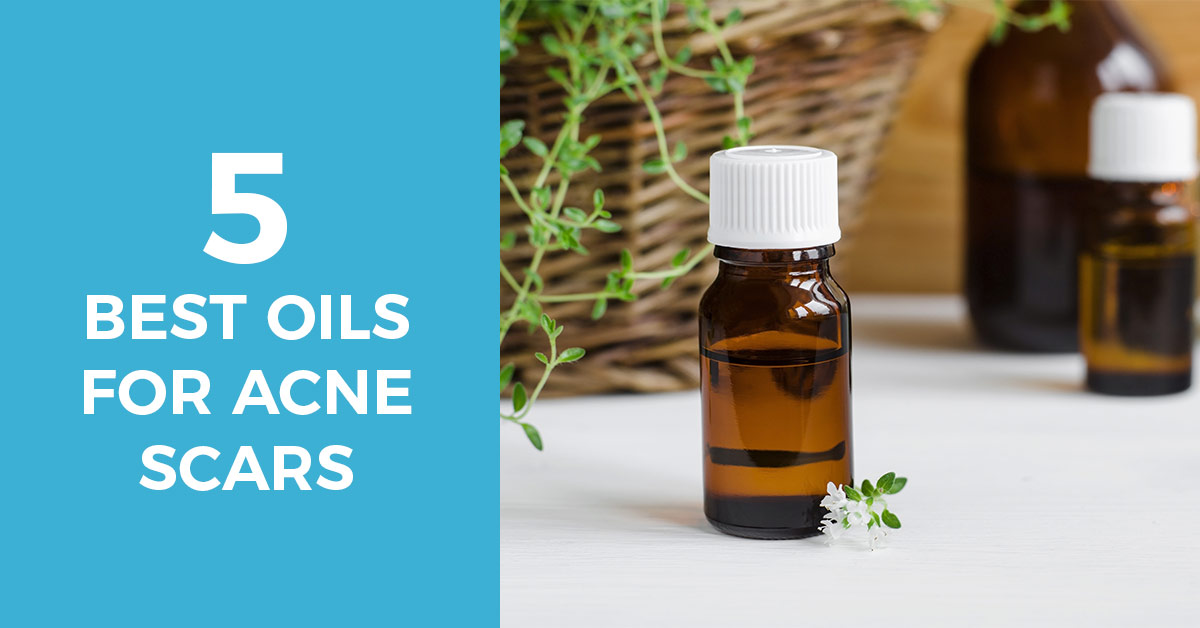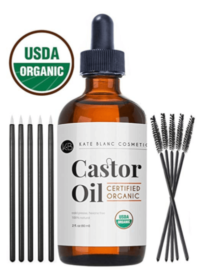Contents
Some extremely lucky people never experience major face blemishes, however many of us do and acne scarring can be a real, permanent pain in the butt (or on the face, for that matter). Like the pimples arent bad enough – they always seem to pop up when least expected, cause unnecessary discomfort and manage to spoil your mood faster than the speed of sound – some also leave a scar when they are gone, just in case you forget.
On the plus side, you’re not alone. According to the National Institute of Arthritis and Musculoskeletal Diseases, around 80% of all people between ages 11 and 30 get acne outbreaks at some point in their lives.
Like it or not, scarring is a natural part of the skin’s healing process after being damaged by a wound. Unfortunately, acne counts as a wound as well. While most superficial wounds heal without leaving any trace, the inflammation caused by acne damages your skin’s dermis – the deeper, thicker layer of the skin – developing scars after the healing process is over.
Don’t get discouraged just yet though. Acne scars can be treated effectively. Below we will take a detailed look at what causes them, how you can prevent them and what are the best oils for acne scars.

There are a number of oils that have been used to heal acne scars for centuries. We recommend using natural oils as they are chemical free, affordable, and in some cases, more effective in dealing with acne scars than medication or surgery.
Natural oils like tamanu, rosehip and Vitamin E are highly recommended by customers who have tried them personally and shared their experience.
5 best oils for reducing appearance of acne scars
Jojoba oil for acne scars
Jojoba oil is an extract from the jojoba plant that has a solid number of skin healing properties and helps get rid of not only acne, but other scars as well. The natural ingredients of jojoba oil soothe, moisturize and protect the skin, while also preserving a natural PH balance. When shopping for jojoba oil, try to get one that doesn’t have other ingredients in the mix. Pure jojoba oil is the most effective choice when it comes to acne treatment. Finally, jojoba oil can be used in combination with lavender or tea tree oil to enhance the healing effects, and lemon oil to boost scar regeneration. 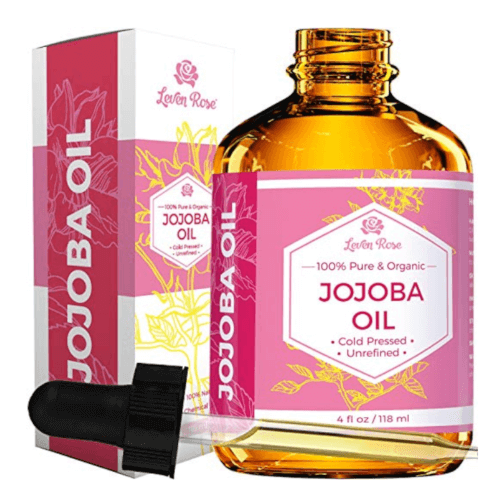
How to use jojoba oil for acne scars
- Wash your face thoroughly with soap.
- Steam your face for 3-5 minutes to open up skin pores.
- Apply a small amount of jojoba oil to your hands, spread it over scarred areas and massage the oil into the skin.
- Leave the oil on overnight and wash it off in the morning with cold water to close the pores.
- Repeat the process for at least two months.
Castor oil for acne scars
Castor oil contains proteins, minerals, Vitamin E and omega-3 fatty acids that penetrate deep into the skin and promote the generation of new cells, softening and healing the scar tissue. It also stimulates proper blood circulation, detoxifies healthy cells and makes your skin less prone to scars.
How to use castor oil for acne scars
- Wash your face thoroughly with soap or cleanser .
- Steam your face for a few minutes to open up the pores.
- Take a small amount of castor oil and spread it evenly over your face and neck before bedtime, creating a thin layer.
- Gently massage scarred areas until the oil is absorbed.
- Leave the oil on overnight and wash it off in the morning with cold water to close the pores.
- Repeat the process for at least a month.
Bio Oil for acne scars
Bio oil is a mix of vitamins (A and E) and natural oil extracts (lavender, calendula, chamomile, rosemary) that have enhanced regenerative, antibacterial and antiseptic effects. One of the most important ingredients of Bio Oil is PurCellin Oil, which acts like a catalyst for other ingredients to be absorbed by the skin faster. 
How to use Bio Oil for acne scars
- Wash your face thoroughly with soap or cleanser.
- Apply a moderate amount of Bio Oil directly to the scar and massage it in a circular motion until it’s fully absorbed.
- Repeat the process for at least 3 months, twice a day.
Lavender oil for acne scars
Besides the irresistible smell, lavender is known for its powerful anti-scarring properties. Due to its superior protective, regenerative and rejuvenative effects, lavender oil enhances new cell generation, while at the same time decreases the chance to get acne scars in the future. Its best to use lavender oil in conjunction with other powerful, restorative products. 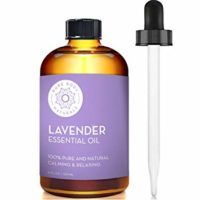
How to use lavender oil for acne scars
- Add 7-10 drops of lavender oil to 6 tablespoons of melted Shea butter and mix them together. Leave for 20 minutes.
- Wash your face thoroughly with a soap.
- Apply the mixture gently to the face, creating a thin layered mask.
- Wash it off with cold water after 15-20 minutes.
- Repeat the process for at least two months, twice a day.
Bergamot oil for acne scars
Bergamot is a citrus fruit family representative about the size of an orange, has yellow color and tastes like a sweet lemon. Bergamot oil is well known for its astringent, antiseptic and regenerative properties and helps get rid of old acne scars as well as new ones. Bergamot oil also helps regenerate melanin – the skin’s natural pigment – and can be used to treat discolored skin areas. 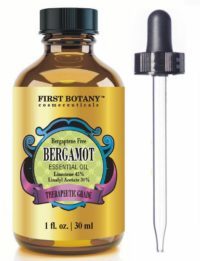
How to use bergamot oil for acne scars
- Wash your face thoroughly with a soap or cleanser.
- Steam your face for a few minutes to open up the pores.
- Pour 3-5 drops of bergamot oil into your hands and apply it gently to the scarred area.
- Repeat the process for at least two months, twice a da7
What causes acne scars
In general, people suffer from two types of acne: noninflammatory (whiteheads and blackheads) and inflammatory (papules, pustules, nodules and cysts).
Noninflammatory are the mild form of acne, which typically don’t cause swelling and are relatively easy to treat with over-the-counter methods (salicylic acid, for instance). Both whiteheads and blackheads occur when skin pores – tiny holes on the surface of the skin – get clogged with excess oil, dead skin cells and environmental debris. Noninflammatory acne are usually found in the epidermis – the superficial layer of the skin – and don’t cause scars after they are gone.
Inflammatory acne are more aggressive, and while they, too, occur when skin pores get clogged with oil and debris, bacteria plays its vital role in their formation, causing an infection inside the deeper layer of the skin – the dermis. This is why inflammatory acne are painful and harder to get rid of.
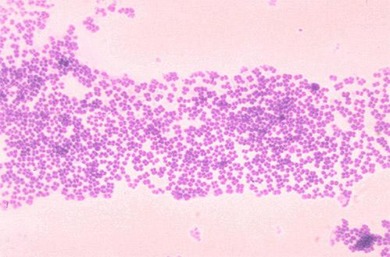
Bacteria causing inflammation under the skin (dark black spots)
When bacteria finds its way into a clogged pore, it swells and damages it, causing an eruption deep inside the skin. In an attempt to repair the damage, the skin forms new collagen fibers and sends them over to the damaged zone. Like any other repair job though, the skin doesn’t look as smooth as it originally did when the process is over.
Inflammation is the primary cause of acne scars. The greater the inflammation and the longer it takes to heal, the more chances that you will be left with a scar.
Let’s get something straight.
No matter how hard you try, you are still going to get acne scars at some point if you are prone to them, which depends on your skin type, genetic factors, hormones, etc. You can, however, substantially reduce the chance of developing acne scars if you follow these simple steps.
Keep your skin clean
This sounds pretty obvious, but as they say “genius is simplicity”. Try to keep your skin clean of environmental debris and excess oil by washing it as soon as you feel the need. If no water and soap is available, you can use wet napkins – preferably ones with antibacterial effects – for the job. They will help delay acne formation until you get to a bathroom.
Reduce inflammation
Remember, the bigger the inflammation, the more chances to develop acne scars. Treat your skin gently and do your best to reduce it. For instance, you can apply ice or a cold object (beer bottle, soda can, etc.) to the inflamed area. Avoid scrubbing your face with a towel after washing and don’t use aggressive cosmetics or skin care products.
Don’t pick at scabs
When your skin is healing, it forms a firm, protective layer over the wound – a scab – to prevent infection. By picking at a scab before the wound is fully healed, you essentially extend the healing period and increase the chance of scar development.
Treat acne as soon as you notice development hints
As with any other wound or disease, damage can be minimized if you take measures right away. Use any over-the-counter methods you can get your hands on as soon as you feel the acne forming under your skin. If there is no kind of medication available, something as simple as alcohol and a piece cotton can do the trick. Alcoholic drinks like vodka contain a fairly high percentage of ABV, and does have some antibacterial effects.
DO NOT SQUEEZE
Okay?
I know it is unimaginably harder than it sounds, but trying to get rid of a pimple with your bare hands does more harm than good. By picking at it, you force debris deeper 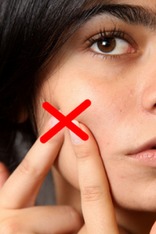 into the dermis and risk adding more bacteria to the wound. As a result, the inflammation may spread to nearby pores, making matters even worse.
into the dermis and risk adding more bacteria to the wound. As a result, the inflammation may spread to nearby pores, making matters even worse.
Key Takeaways
Acne is a common problem for the whole world, and it has always been one. While some people get luckier than others in terms of developing acne and acne scars, it’s important to always try and prevent acne development as best as you can, than deal with the consequences later.
Study your organism and skin type to understand what works for you, and what works against you. For instance, some people have latent allergies towards dairy products that they aren’t even aware of, which can cause acne at some point in life. Other people have naturally oily or dry skin, which they need to regularly dehydrate or moisturize respectively.
As a general rule, maintaining good hygiene and a healthy diet is a solid way to decrease the chance of getting acne and acne scars accordingly. If you did end up with acne scars after all your efforts, don’t let them ruin your mood – you can get rid of them using the best oils for acne scars and their application methods mentioned above.
What other methods of dealing with acne scars have you tried? What were the most successful ones? Share your story with us in the comments below!

